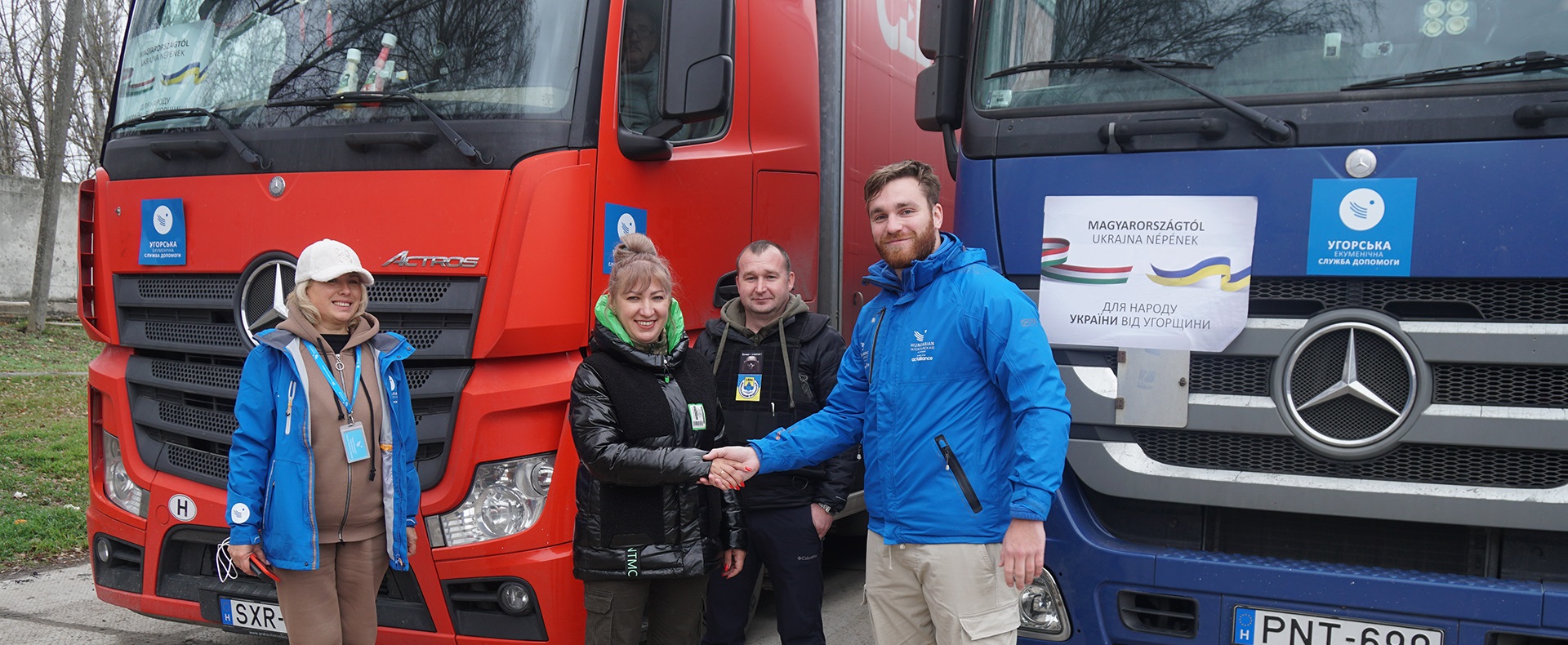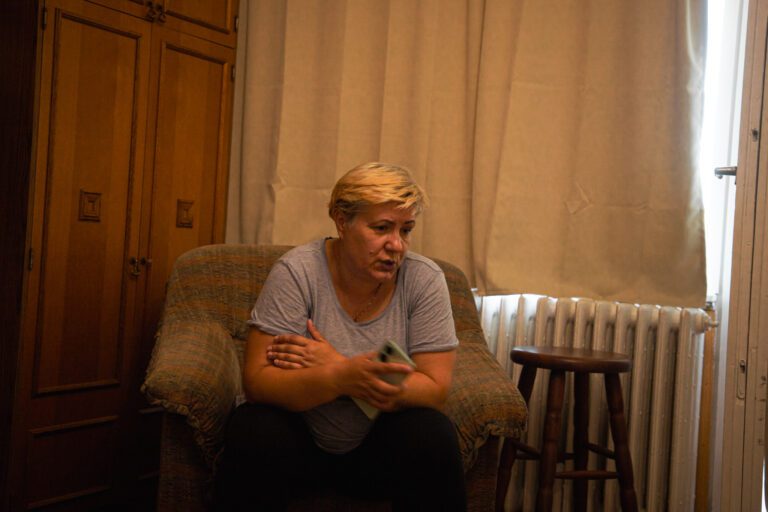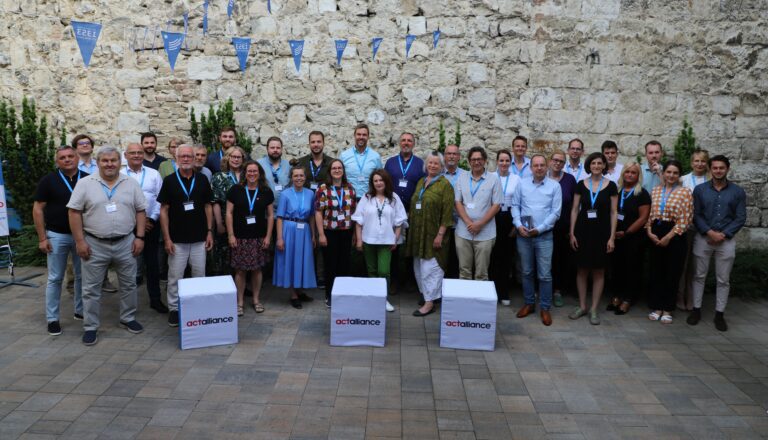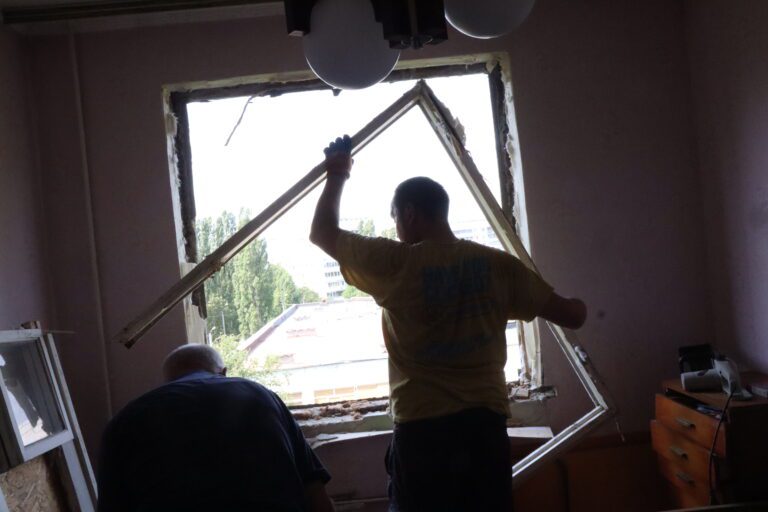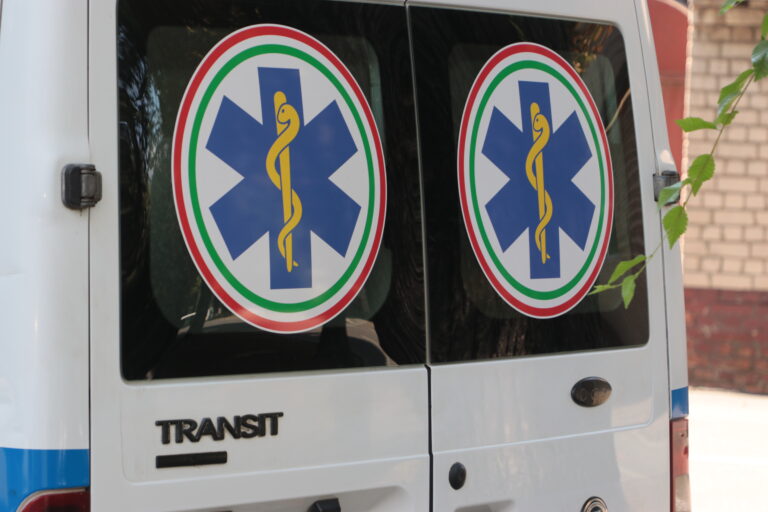Among the first to bring aid to liberated Kherson
THE 30-TONNE AID CONSIGNMENT MADE UP OF READY-TO-EAT FOOD, WATER AND HYGIENE PRODUCTS REACHED THE FRONTLINE CITY’S DEPRIVED POPULATION
Hungarian Interchurch Aid (HIA) was among the first international aid organisations to bring aid to the recently liberated city on the frontline. Kherson was cut off from all utility networks after Russian troops withdrew, leaving the port city’s population and the surrounding settlements without heating, water and electricity. Exposed to constant artillery barrage, the vast majority of the citizens that stayed behind rely on humanitarian aid to provide food for themselves. Therefore, HIA started the distribution of relief items to the destitute population of the city and the surrounding agglomeration.
Barnabás Szatmári, head of the Kyiv office of Hungarian Interchurch Aid personally led the delivery and unpacking of the aid consignment in Kherson. According to him, the situation in Kherson is critical: the 80,000 people remaining in the city are left with no utilities and only a few shops to buy anything – meaning that the survival of the residents depends on humanitarian aid. Shops and aid distributions are regularly targeted by Russian artillery from positions across the river causing numerous civilian casualties.
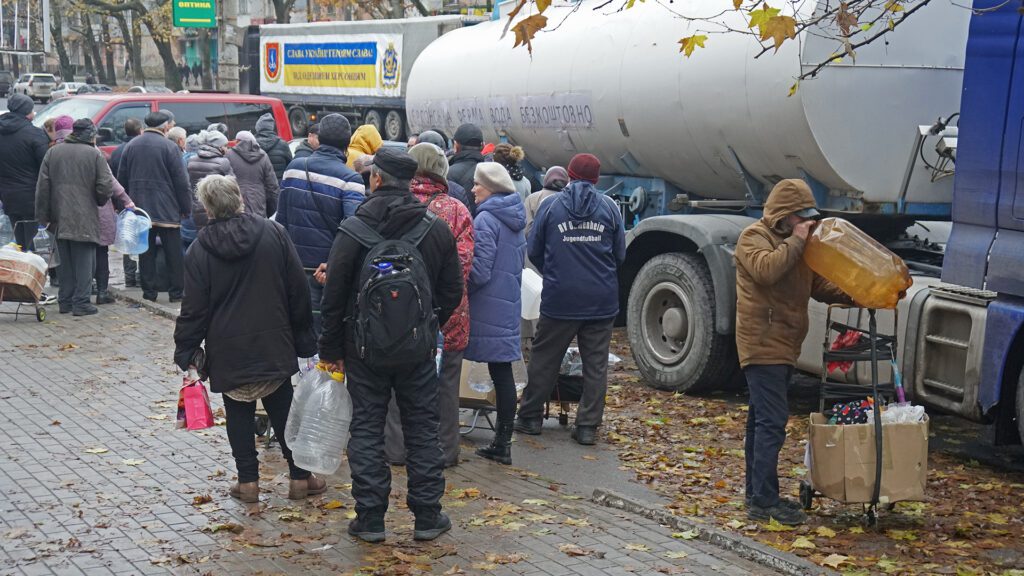

Kherson was cut off from the world for more than half a year, with many people only able to contact their loved ones after the liberation of the city. Residents flock to the few heated tents where diesel generators provide necessary electricity to charge their phones. In the absence of tap water, potable water is obtained either through humanitarian aid, or gets hauled in and brought to water distribution points by trucks – however, water for sanitation needs is still drawn from the Dnieper river.
Getting the aid into the city remains challenging, with roads and bridges on the way destroyed, and bypasses covered in deep mud until the first real frost arrives. Apart from the mud, the Russian army left an extensive number of unmapped minefields around the city, making movement in and into the city even more difficult. Although most of the city’s residential buildings are intact, this is not true for adjacent villages, where freezing temperatures threaten to cause a humanitarian disaster.
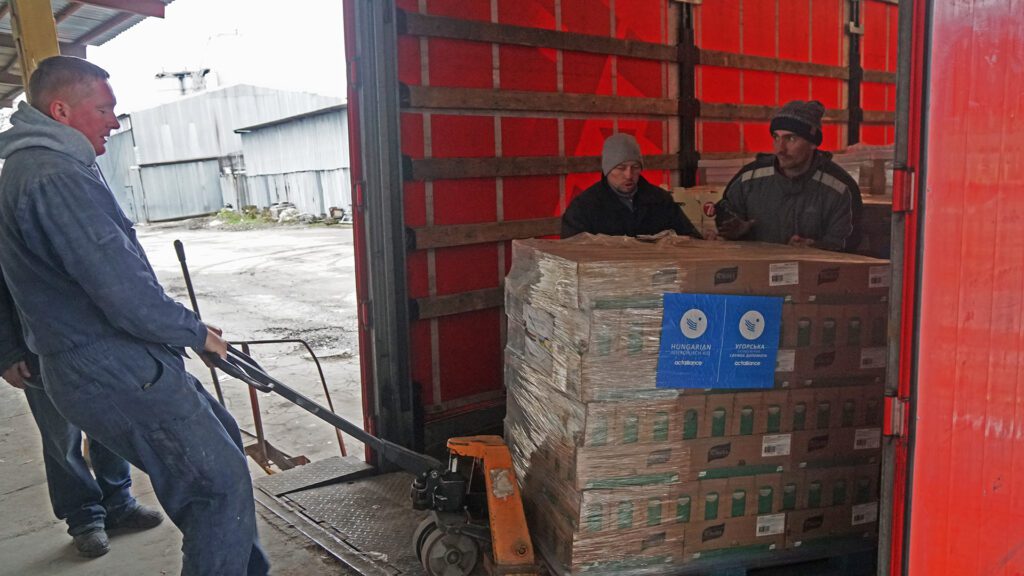

Barnabás Szatmári stressed that the 30 tonnes of ready-to-eat food and drinking water distributed by HIA will provide immediate help to 3,500 households with the most urgent needs. The needs remain huge nevertheless, which is why in addition to the two trucks HIA is preparing further humanitarian aid consignments to Kherson and the broader region.
Hungarian Interchurch Aid was among the first international aid organisations to help refugees and people in need both in Ukraine and Hungary. HIA has been present in Ukraine for 25 years – since war broke out, it has helped nearly 200 thousand people in 19 regions of Ukraine, delivering more than 1,300 tonnes of aid to the war-torn country. HIA’s humanitarian programme is implemented in collaboration with ACT Alliance, providing emergency aid as well as cash assistance and psychosocial support to those in need.

